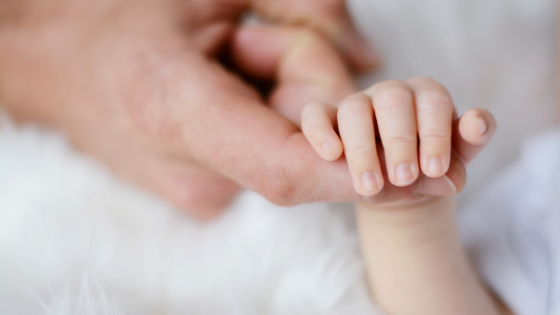
Children's skin: Instructions for use
Share
The skin of newborns has a completely different physiology from that of adults and deserves a separate study. Here are some curiosities about children's skin that you may not have known.

At the time of birth, the baby's skin is completely sterile and is contaminated within a few hours by bacterial flora.
The skin's natural hydration factor (Natural Moisturizing Factor) is present in lower quantities in the skin of newborns, also for this reason in certain situations it appears drier, cracked and irritated.
After the third month of life the sebaceous glands undergo an arrest that will last until the period of puberty and the lack of sebum secretion significantly influences the composition of the hydrolipidic film and the functionality of the skin barrier.

Sweat glands and melanocytes are less active and the more basic pH further contributes to making infant skin weaker and more susceptible to external agents.
Incredible, right?
After this brief introduction, we understood that although children's skin is spectacularly soft, smooth and firm, it is also very fragile and must be protected as much as possible from dangers present both in the external environment such as ultraviolet radiation or adverse climatic situations (wind,rain, cold) and in the actual skin environment where certain areas such as that of the diaper, or the skin around the mouth in contact with saliva, can develop cracking and even very marked redness.

In the event of any anomaly on the skin of children, it is necessary and mandatory to contact the pediatrician or dermatologist quickly, I recommend never improvising with the skin of your little ones!
However there is good news: you can use some small precautions in normal situations to prevent worse skin conditions and guarantee healthy skin for your little ones.
Cosmetics for children are a class that must have some well-defined characteristics such as:
-
Absence of perfumes and dyes
-
High stability
-
Ease of application
-
pH more basic (6. 0-7. 4) that approaches that of neonatal skin
-
total harmlessness from a toxicological point of view
Now let's see the areas of greatest interest for neonatal skin care

• CLEANSING
Detergents for children must be extremely delicate in order not to alter the already fragile balance of the hydrolipidic film and the oils contained in the detergents must be sebum-like or very similar to the composition of sebum.
Excellent ingredients are the unsaponifiable fraction of olive oil, starchrice starch, oat flour and avocado oil .
The optimal bath temperature is around 36-37°C and you can alternate the shower gel or shampoo with water-soluble oils and moisturizing products (cleansing milks) which prevent excessive dehydration of the skin.

Tips: after bathing you can use
Children's shampoos have a pH similar to that of tears (about 7. 0) so as not to cause burning in contact with the eyes, moreover they are more viscous to allow a longer stay in place and to avoid dripping on the face and eyes of the child.
Generally, the use of shampoo is not recommended in the first year of life, asthe newborn, not producing sebum, will hardly have greasy or greasy hair. On the other hand, if we are in the presence of cradle cap we can use shampoo-oils capable of softening the scabs, favoring their detachment, in any case it is always better to hear the doctor's opinion before carrying out this operation.
• FACE AND BODY CREAM
Using moisturizing creams is very important in children whose skin is fragile and poorly protected and is subjected to both external insults (cold, sun, wind) and also situations of continuous rubbing, for example in the diaper area.
Moisturisers for children mainly come in the form of rich and nourishing emulsions containing many moisturizing substances and nourishing oils which allow the skin to implement its barrier effect.
The presence in the cream of these soothing, moisturizing and nourishing ingredients is excellent: calendula, bisabolol, mallow, wheat

• SUN PROTECTION
Children's skin has reduced activity on the part of melanocytes (the cells that allow tanning, to understand ) and therefore their skin is very exposed to solar radiation, for this reason before the age of 3 it is recommended not to expose children to the sun for a prolonged period.
In case of exposure, it is advisable to apply a thick layer of sunscreen with SPF 50+ and renew the application often and certainly after each bath.
For older children, the SPF of the protection must be chosen based on their skin phototype, however it is recommended not to go below the SPF 30.
After sun exposure, we recommend the application of nourishing, lenitivei and restorative after-sun products.

If you have any curiosity about solar products then our article and our BonPils from last week are definitely for you.
![]()

Dr. Federica D'Incà - COSMAST Master in Cosmetic Science and Technology
"Every woman has the right to be beautiful" - Elizabeth Arden
